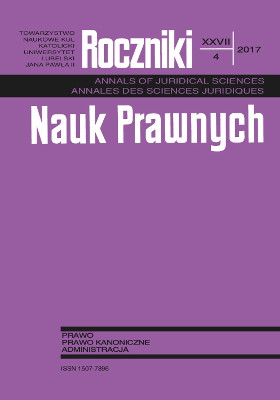Stan aktualny i perspektywy rozwoju polskiego prawa spółdzielczego
Current Status and Prospects for the Development of Polish Cooperative Law
Author(s): Piotr ZakrzewskiSubject(s): Law, Constitution, Jurisprudence, Civil Law
Published by: Towarzystwo Naukowe KUL & Katolicki Uniwersytet Lubelski Jana Pawła II
Keywords: cooperative; co-operative law reform; co-operative purpose; cooperative participation in the company; agricultural co-operatives; co-operative capital
Summary/Abstract: The article discusses the current state, legislative threats related to the preparation of the future polish cooperative act and selected legislative proposals. The legal status of polish cooperatives is unsatisfactory. The basic assumptions, structure and content of regulations that are archaic and residual are defective.A new cooperative law will not solve the problem, if the new law actually accepts the amendment of the existing legislation. Another danger may be due to defective definition of the essence and place of the cooperative in the social market economy.The forthcoming cooperative act should be limited to general issues that apply to each cooperative. Specific laws should regulate individual cooperatives, eg. credit cooperatives. The law should guarantee broad statutory freedom.It is very important to have a precise, but at the same time, a comprehensive definition of the purpose of the cooperative. A good example may be the definition taken from the Finnish cooperative law, which reads: “The purpose of a co-operative shall be to promote the economic and business activities of its members by means of the pursuit of economic activity where the members make use of the services provided By co-operative or services that co-operative arranges through a subsidiary or otherwise”. Future regulation should not limit the access of cooperatives to trading companies as a member.There is a process of blurring differences between legal entities, and this also applies o cooperatives. Therefore, they should take over to some extent the solutions from typical commercial companies, such as the transferability of shares.
Journal: Roczniki Nauk Prawnych
- Issue Year: 27/2017
- Issue No: 4
- Page Range: 87-108
- Page Count: 22
- Language: Polish

